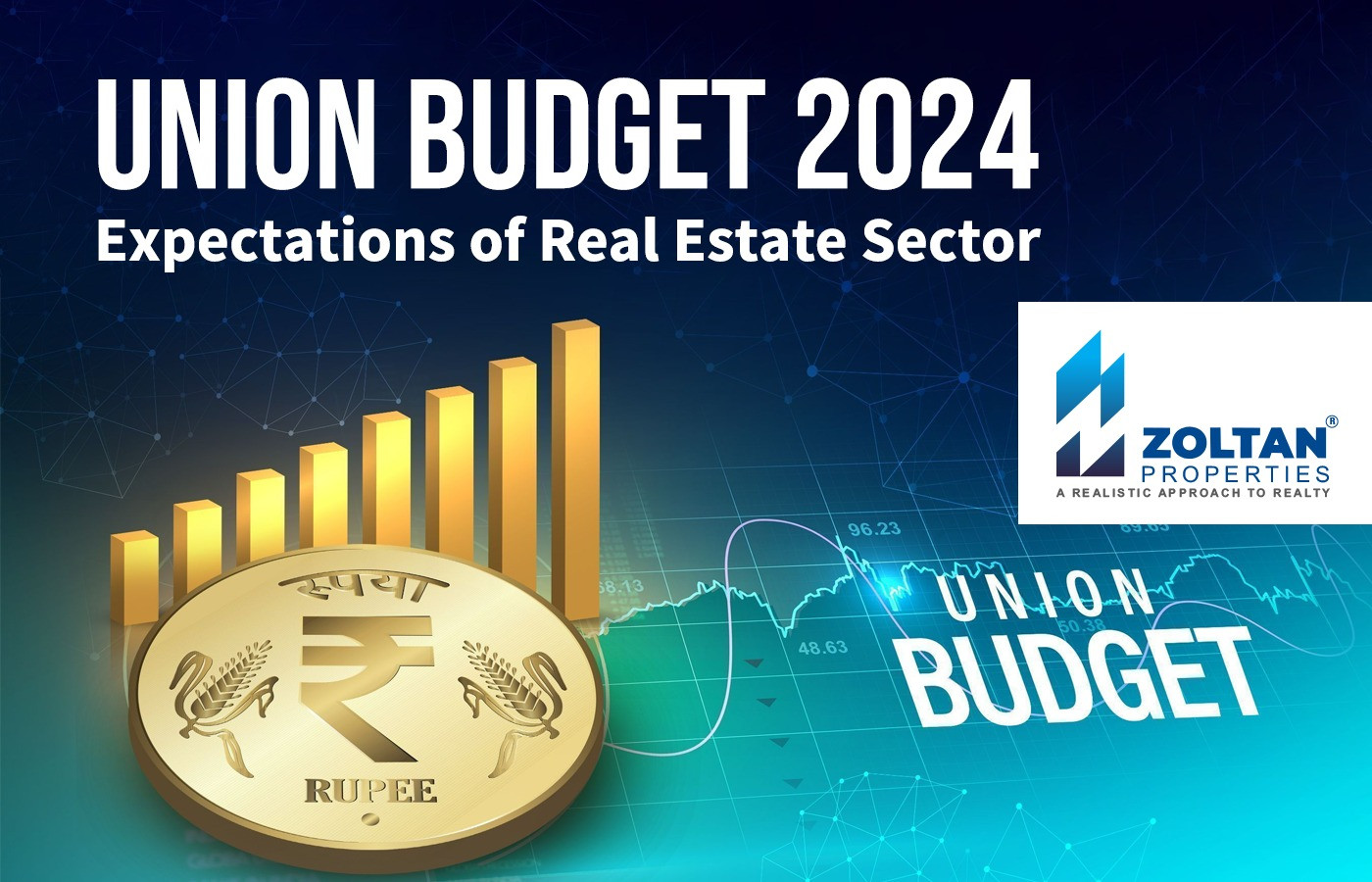The Indian real estate sector is on the cusp of a transformative phase, and the Union Budget 2024 holds the key to unlocking its full potential. As a cornerstone of the economy, contributing approximately 7.3% to the GDP and generating substantial employment, the sector's growth is intrinsically linked to the nation's overall economic prosperity.
The Real Estate Sector: A Driving Force
India's burgeoning population, coupled with the aspiration for homeownership, has created a robust and resilient real estate market. The sector's performance has been particularly impressive in Tier-II cities, where housing sales surged by 11% in the fiscal year 2023-24. This sustained growth underscores the sector's significance and the immense expectations pinned on the upcoming budget.
Budget 2024: Expectations and Anticipations
The government's budget is anticipated to strike a balance between social welfare initiatives and infrastructure development, with a strong focus on job creation and long-term economic growth. The real estate sector is keenly awaiting policy measures that can address its challenges, stimulate investment, and foster a conducive environment for growth.
Key expectations from the budget include
1. Infrastructure Push: The government's ambitious National Infrastructure Pipeline, worth Rs 111 lakh crore, is expected to have a ripple effect on real estate. Investments in road and urban infrastructure are likely to open up new growth corridors and transform real estate landscapes.
2. Affordable Housing Focus: The government's target of building two crore houses by 2025 is a testament to its commitment to affordable housing. The budget is expected to provide incentives and support to attract investors to this segment, thereby expanding housing accessibility.
3. Digital Infrastructure and Smart Cities: With a proposed allocation of Rs three lakh crore for digital infrastructure, the budget is likely to boost data center real estate and accelerate the development of smart cities.
4. Urban Transportation: The expansion of metro rail networks across 25 cities, backed by an investment of Rs four lakh crore, presents significant opportunities for transit-oriented development.
5. Green Initiatives: An anticipated allocation of Rs 1.5 lakh crore for renewable energy infrastructure is expected to drive growth in green buildings and sustainable communities.

Anticipated Changes in the Real Estate Sector
To propel the real estate sector to greater heights, several policy and regulatory changes are on the wishlist of industry stakeholders and homebuyers alike.
Taxation Reforms and Incentives:
1. Increased tax deduction limit: Homebuyers are seeking an increase in the tax deduction limit on home loan interest under Section 24(b) from Rs two lakh to Rs five lakh.
2. GST rationalization: A unified GST rate on construction materials could significantly reduce property prices and boost affordability.
3. Reintroduction of tax holiday: The reinstatement of the tax holiday under Section 80IBA for affordable housing developers can incentivize investment in this crucial segment.
Also Read: Explore Top Reasons Why Residential Real Estate is a Secure Investment Option In India
Affordable Housing
Expanded price cap: A broader definition of affordable housing is necessary to accommodate rising property prices and cater to a larger segment of homebuyers.
Increased allocation for PMAY: Enhancing the budget for the Pradhan Mantri Awas Yojana (PMAY) can accelerate the realization of the 'housing for all' vision.
Revival of support schemes: Reintroducing the Credit-Linked Subsidy Scheme (CLSS) and bolstering the Special Window for Affordable and Mid-Income Housing (SWAMIH) fund can improve liquidity and support homebuyers.
Regulatory and Policy Changes
Streamlined approvals: Simplifying and digitizing the approval process for real estate projects can reduce delays and enhance efficiency.
Industry status: Granting industry status to the real estate sector can attract investments and facilitate easier access to credit.
Incentives for green buildings: Promoting sustainable practices through tax benefits and other incentives can attract investment and contribute to environmental goals.
Industry Reactions and Market Outlook
The real estate sector is optimistic about the upcoming budget and expects it to be a catalyst for sustained growth. Key industry expectations include:
Increased homeownership: The sector anticipates continued strong demand for residential properties driven by the aspiration for homeownership.
Tax benefits: Industry players are advocating for tax reforms to boost housing demand, such as increased tax deductions on home loan interest and tax exemptions on rental income.
Improved investment climate: Addressing liquidity concerns, simplifying regulations, and creating a conducive business environment are crucial for attracting investments.
Revived support schemes: Enhanced funding for SWAMIH and the revival of CLSS are expected to unlock the potential of the affordable housing segment.
Streamlined processes: Digitization of land records and efficient approvals can accelerate project timelines and enhance investor confidence.
The Union Budget 2024 holds immense promise for the real estate sector. By addressing the key expectations and implementing the necessary reforms, the government can unlock the sector's full potential, create jobs, and contribute significantly to India's economic growth story.
Source: timesproperty.com

 IN
IN
 France
France
 Germany
Germany
 Greece
Greece
 India
India
 Saudi Arabia
Saudi Arabia
 Spain
Spain
 United Arab Emirates
United Arab Emirates
 United Kingdom
United Kingdom
 United States
United States






